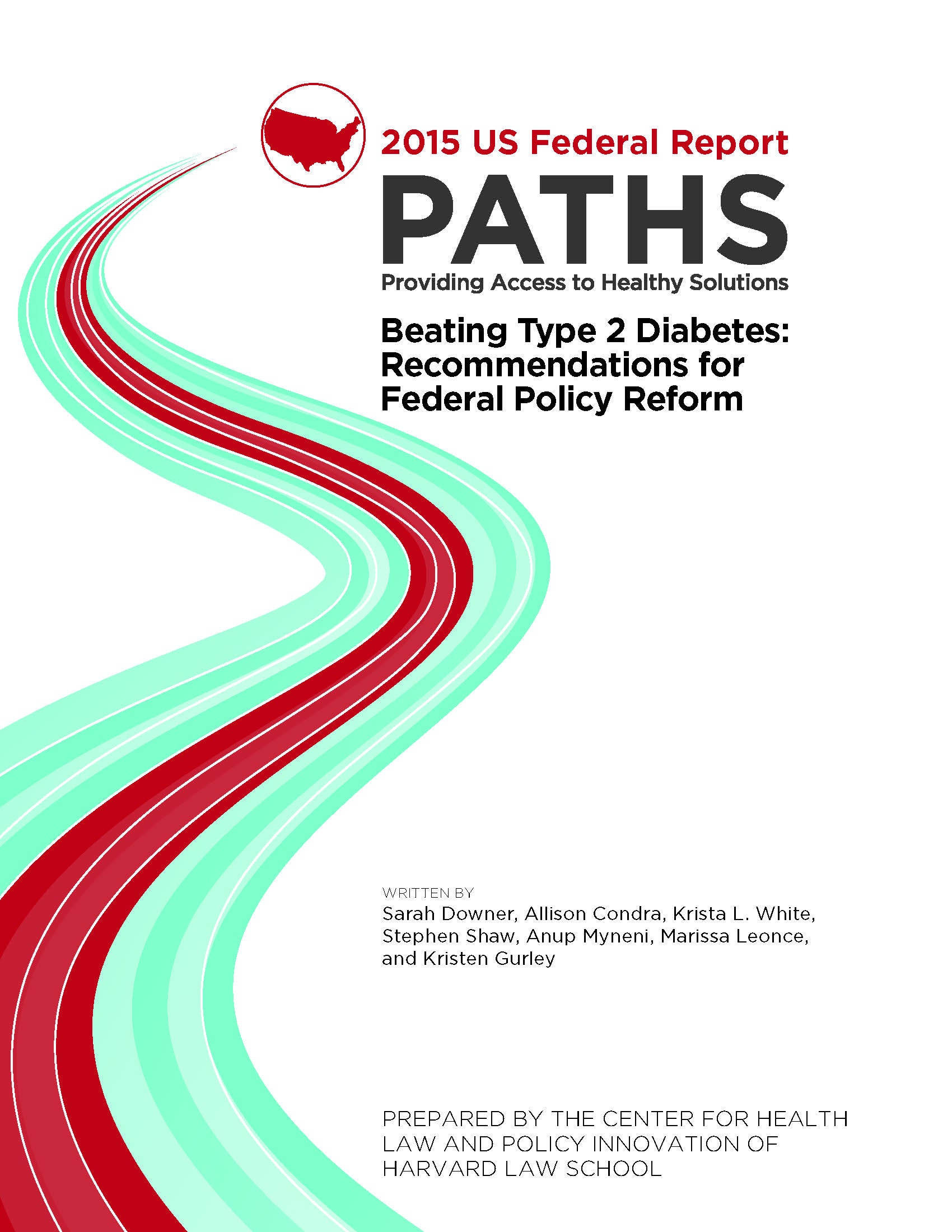As a direct response to the looming health epidemic, the Center for Health Law and Policy Innovation (CHLPI) officially launched a campaign to promote federal law and policy reforms for type 2 diabetes prevention and management on May 19. This effort is part of CHLPI’s broader, multi-phase Providing Access to Healthy Solutions (PATHS) initiative that first worked to strengthen local and state policy to address diet-related health conditions and more specifically improve type 2 diabetes treatment and prevention. PATHS is now focusing on federal law and policy reform.
The Federal Report, written by CHLPI staff and the clinic students, offers specific recommendations to decrease the incidence of type 2 diabetes and to promote effective management of the disease in those who have already been diagnosed. Beating Type 2 Diabetes: Recommendations for Federal Policy Reform builds off of the best-practices identified through years of work at the state and local level and the guidance of people living with and at-risk-for diabetes, health and social service professionals, food providers and producers, government officials and other stakeholders,” says Robert Greenwald, Clinical Professor of Law at Harvard Law School and Director of its Center for Health Law and Policy Innovation (CHLPI).

Without federal action, one in three Americans will be diagnosed with type 2 diabetes by 2050. Not to mention that the staggering total cost of the disease to the United States is up to $245 billion dollars a year and continuing to climb
Robert Greenwald, Clinical Professor of Law at Harvard Law School and Director of the HLS Center for Health Law and Policy Innovation
HLS students in the Health Law and Policy Clinic of CHLPI contributed to the report creation over the past two years, researching such issues as: Medicare coverage of medically-appropriate food as a cost-effective diabetes intervention; prediabetes services in Essential Health Benefits to improve health and reduce costs; and coordinated diabetes care models through diabetes-specific Center for Medicare & Medicaid Innovation Awards. “I found the opportunity to work on the PATHS report very rewarding,” says Krista White, ’16. “There’s a clear intersection between diabetes and many other serious and disabling health conditions, and the report calls for the types of policy reform and action that are needed to keep Americans healthy. It also suggests important measures to curb rapidly escalating costs associated with the healthcare system’s failure to effectively prevent and treat diabetes.”
CHLPI’s campaign also includes a series of federal policy roundtables, the first held on May 19 in Washington, D.C. Beating Type 2 Diabetes: A Policy Roundtable on Increasing Access to the Diabetes Prevention Program and Diabetes Self-Management Education focused on the need for stronger federal laws and policies to support cost-effective diabetes prevention and self-management programs. Two more roundtables, one looking at the role of community health workers in providing diabetes care and the other focusing on the role of food in federal diabetes policy, are slated to follow. Like the first, the upcoming roundtables will gather thought leaders from across disciplines, including legislators, federal and state agency staff, health payers and providers, and diabetes advocates to move the diabetes policy agenda forward as outlined in the Federal Report.
Visit www.diabetespolicy.org for more information about the PATHS initiative and to find the Beating Type 2 Diabetes: Recommendations for Federal Policy Reform report and executive summary.
